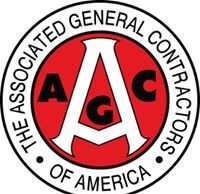Los Angeles, San Antonio and Seattle developments cited as national models
WASHINGTON, DC – May 12, 2011 – (RealEstateRama) — Three affordable housing developments are the recipients of the HUD Secretary’s Housing and Community Design Award for excellence in residential housing design.
The U. S. Department of Housing and Urban Development, in conjunction with the American Institute of Architects, selected the New Carver Apartments in Los Angeles, California; the Haven for Hope homeless facility in San Antonio, Texas; and a renovation of a of a mid-century modern home in Seattle, Washington as models for a new generation of affordable housing.
Danberry Carmon, HUD’s Field Office Director in New Orleans, will present the awards this evening during the 2011 AIA National Convention and Design Exposition in New Orleans.
“Whether it is renovating the interior of an existing home to make it more accessible or using innovative architecture to create a service-rich housing development for the homeless, these projects break the old mold and redefine what affordable housing means,” said HUD Secretary Shaun Donovan, himself a trained architect.
The 2011 HUD Secretary’s Housing and Community Design Award recipients are:
Excellence in Affordable Housing Design: New Carver Apartments in Los Angeles, California (Submitting Architect: Michael Maltzan)
- This award recognizes architecture that demonstrates overall excellence in terms of design in response to both the needs and constraints of affordable housing. This project pushes the boundaries of what affordable housing should look like and how architecture can transform communities. The development revived an underutilized neighborhood in downtown Los Angeles and made no distinction between affordable housing and high-end design. The housing, combined with on-site social services, is the most effective means of permanently ending homelessness in the community.This 97-unit project not only satisfies the needs of the 95 formerly homeless residents, who earn less than 50 percent of the Area Median Income, but provides high-quality and sustainable housing in an area with a critical shortage of affordable housing stock. The project includes a spectrum of social spaces, from the very public – such as the central courtyard – to the very private units with semipublic and semiprivate spaces, like the community kitchen and social service offices. The design provides a safe and secure environment, yet is porous enough to encourage interaction. Financing was provided by the Los Angeles Housing Department and the State of California Department of Housing and Community Development, along with from the American Recovery and Reinvestment Act.
Community-Informed Design: Haven for Hope in San Antonio, Texas
(Submitting Architect: James Andrews)
- This award recognizes projects that incorporate housing with other community amenities for the purpose of either revitalization or planned growth. Determined to change the plight of its homeless population, the City of San Antonio, Bexar County, and nonprofit and private organizations worked together to develop a comprehensive campus of transformation to address and treat the root causes of homelessness. Bordering downtown and a low-income community, the site itself was an industrial park that had included several abandoned warehouses. The challenge was to create public spaces that invoked a campus environment while reaching out to the community. Architects and stakeholders held design “charrettes” and progress meetings with service providers, interest groups, law enforcement, and neighborhood associations. As a result of this state-of-the art facility, San Antonio-based agencies such as University Health Systems and the Center for Health Care Services have become intimately involved in the operations, and volunteers are an integral part of the campus. It has turned a formerly blighted area into an epicenter of promise and opportunity.
Alan J. Rothman Award for Housing Accessibility – Magnolia Mid-Mod, Seattle, Washington
(Submitting Architect: Carol Sundstrom)
- The purpose of this award is to recognize exemplary projects that demonstrate excellence in improving housing accessibility for people with disabilities. A whole-house interior renovation of a mid-century modern home, this project had no choice but to be universally designed. It belongs to a family of three: a father and two wheelchair-users (mom and daughter). As the daughter became older, teaching her to cook meant that there were two wheelchairs sharing a tiny U-shaped kitchen and no room for dad to help. With adolescence also came a realization that teenagers need a place to entertain themselves separate from grown-ups. The only room large enough for that purpose offered no privacy. The homeowner’s first impulse was to add a second story to the house, but the idea was quickly met with several uncomfortable realities: losing the mid-century scale and charm of the exterior, having to use an elevator multiple times a day, and the price tag. The solution was to find more square footage within the existing exterior walls, spending less, overall, while taking advantage of opportunities to create custom, innovative solutions. As a result, the home is a laboratory for solutions that are both highly functional and universally appealing, with the intent to inspire others to consider the investment potential, both financial and experiential, of planning for a broad range of mobility over a long period of time.
Read a full description of the 2011 winners of HUD Secretary’s Housing and Community Design Award.
###
HUD’s mission is to create strong, sustainable, inclusive communities and quality affordable homes for all. HUD is working to strengthen the housing market to bolster the economy and protect consumers; meet the need for quality affordable rental homes: utilize housing as a platform for improving quality of life; build inclusive and sustainable communities free from discrimination; and transform the way HUD does business. More information about HUD and its programs is available on the Internet at www.hud.gov and espanol.hud.gov.
Contact:
Brian Sullivan
(202) 708-0685













